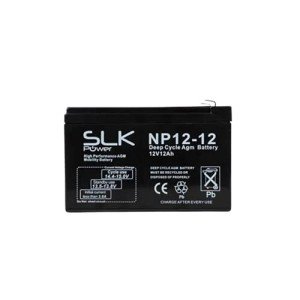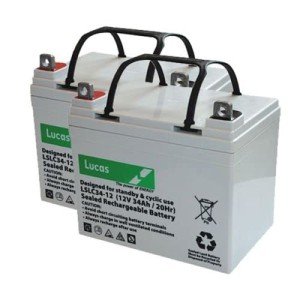In recent years, mobile smart scooters have surged in popularity, transforming the way urban dwellers navigate their daily routines. This revolution can largely be attributed to advancements in battery technology, particularly the widespread adoption of lithium batteries. Renowned for their efficiency and performance, lithium batteries are rapidly becoming the gold standard for electric scooters. This guide delves into the intricacies of lithium batteries in mobile smart scooters, highlighting their advantages, applications, and considerations for users.
Understanding Lithium Batteries
Lithium batteries are rechargeable energy storage systems that utilize lithium ions to move between an anode and a cathode, generating electrical energy. Unlike traditional lead-acid batteries, lithium batteries offer a multitude of benefits that enhance the performance of smart scooters. These advantages include a higher energy density, faster charging times, and a longer lifespan.
Key Features of Lithium Batteries
-
Energy Density: Lithium batteries can store a significant amount of energy in a compact size, making them ideal for lightweight scooters that need an efficient power source.
-
Weight: Lithium batteries are lighter compared to their lead-acid counterparts, contributing to an overall reduction in the weight of the scooter. This feature enhances maneuverability and ease of transport.
-
Longer Lifespan: Lithium batteries have a longer cycle life and longevity, often exceeding 2,000 charge cycles compared to approximately 500 cycles for lead-acid batteries. This translates into fewer replacements and reduced waste over time.
-
Fast Charging: Lithuim batteries can charge faster than lead-acid batteries, making them convenient for users who may need a quick charge during their daily commuting.
-
Lower Maintenance: Unlike lead-acid batteries, lithium batteries require minimal maintenance and do not suffer from issues like sulfation or deep discharge.
The Role of Lithium Batteries in Mobile Smart Scooters
Mobile smart scooters have integrated state-of-the-art lithium battery technology to meet the growing demands of urban mobility. Manufacturers have recognized the need for efficient, reliable, and compact power sources to improve user experience.
Benefits of Lithium Batteries for Smart Scooters
-
Improved Range: With higher energy density, lithium batteries allow for extended range capabilities. Many modern smart scooters can achieve ranges of 25 to 50 miles on a single charge, making them suitable for commuting and leisurely rides.
-
Performance Efficiency: Electric motors paired with lithium batteries deliver powerful acceleration and consistent speed. This enhances the ride quality and ensures that users can navigate their environments without compromising performance.
-
Customizability: Many scooters come equipped with replaceable lithium battery packs, allowing users to customize their range and performance based on personal requirements and preferences.
Considerations When Choosing a Lithium Battery Scooter
While lithium batteries significantly enhance the performance of mobile smart scooters, potential users should also be aware of several important considerations:
1. Battery Capacity and Range
- Assess the battery capacity (measured in amp hours, Ah) and the expected range to ensure it meets daily commuting needs.
2. Charging Time
- Different models will have varying charging times. A quicker charging time can be critical for users who are frequently on-the-go.
3. Weight and Portability
- Since lithium batteries are lightweight, verify the overall weight of the scooter combined with the battery to ensure it is manageable for your lifestyle.
4. Safety Features
- Look for scooters equipped with management systems that protect against overcharging, overheating, and short-circuit risks.
5. Warranty and Support
- Understanding warranty conditions for the battery and the scooter as a whole is essential for peace of mind. Opt for brands that provide robust customer support.
Future Developments in Lithium Battery Technology
As technology continues to advance, the future of lithium batteries in mobile smart scooters looks promising. Innovations such as solid-state batteries are on the horizon, potentially offering even greater efficiency and safety. Electric vehicle manufacturers are investing heavily in research to enhance battery chemistry, optimize cost, and improve sustainability by using recycled materials.
FAQs
What is a lithium battery?
A lithium battery is a rechargeable energy storage device that uses lithium ions to store and release electrical energy. They are lightweight, efficient, and have a longer lifespan compared to traditional batteries.
How long do lithium batteries last in scooters?
Lithium batteries typically last between 2 to 5 years, depending on usage patterns, charging habits, and maintenance. They can provide up to 2,000 charge cycles.
How long does it take to charge a lithium battery scooter?
Most lithium battery scooters take between 4 to 8 hours to fully charge, though this can vary based on the battery capacity and the charger being used.
Are lithium batteries safe?
Lithium batteries are generally safe when properly manufactured and maintained. However, it is essential to use them according to the manufacturer's guidelines to prevent hazards.
Can I replace the lithium battery in my scooter?
Many modern smart scooters are designed with user-replaceable lithium battery packs. However, always check the manufacturer's specifications and guidelines.
Lithium batteries have reshaped the landscape of mobile smart scooters, driving their popularity and usability. With significant advantages such as improved energy efficiency, reduced weight, and extended lifespan, these batteries not only enhance the performance of scooters but also promote a sustainable approach to urban mobility. As technology continues to evolve, we can expect even more innovations in battery design that will further improve these handy modes of transportation. Whether for commuting, leisure, or convenience, mobile smart scooters equipped with lithium batteries are paving the way for the future of travel in urban environments.






